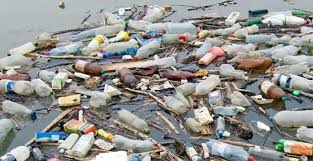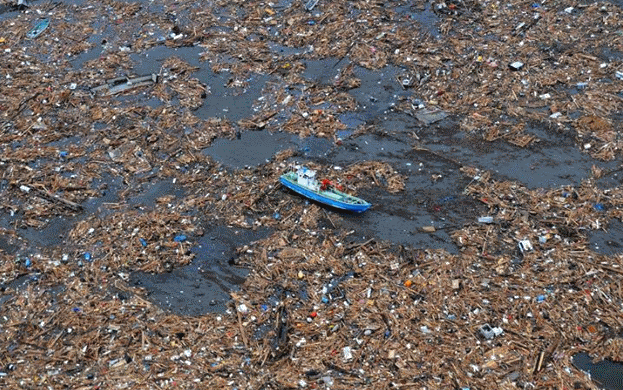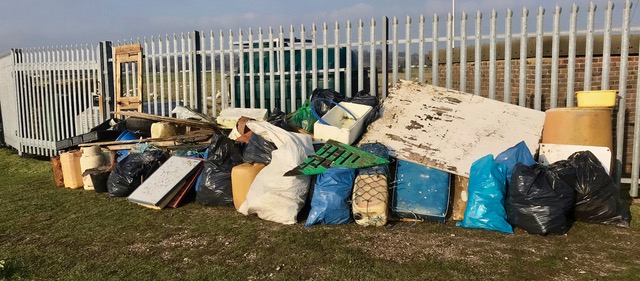Last week we ran an article by Heidi Foster on the amount of rubbish collected by a clearance team along a small stretch of the river Rother bank and a significant amount of this was plastic, or plastic-based.
Plastic is a wonderful invention, it is cheap, easily obtainable by industry to use in so many applications that we take for granted today.

But there is a downside. Although some plastic products are designed to be biodegradable, the vast majority will take many years – often hundreds of years – to degrade. Landfill sites are full of the stuff and, more importantly, our rivers and oceans are becoming a dumping ground for plastic waste.
So what has this to do with Rye? Well, quite a lot, actually. We are a coastal town and still have a fishing fleet. Fish is an important and highly nutritious food and many of us enjoy the ability to buy truly fresh fish straight from the sea. However the seas are becoming poisoned. Fish have been found to be consuming plastic, which does them no good, and, in particular the plastic micro beads used by the cosmetic industry have been proving particularly harmful. But it is not just fish. As an island, the country as a whole still relies on seaborne trade to supply the majority of our imported goods and the sea and its currents affect our climate.
More locally, we are a town where tourism forms a major part of our economy and and it is inevitable that there will always be a small amount of litter in our streets – particularly in the tourist season and despite the excellent work of both council staff and our own town steward. The greater part of this is plastic. Old shopping bags, styrofoam fast-food containers, sweet wrappings etc are all there. Our beaches suffer the same problem. Once again, every effort is made to keep them clean, but well before the clearers can get to work, the tide will have taken much of the litter left by users of the beach out to sea, either to be distributed along other beaches and rivers or to remain to endanger the creatures that live in the sea.

There is an area of the Pacific which has become a plastic floating island many, many miles wide, and this is just 1% of what is under the water and on the ocean bed. This may not seem much to do with Rye – the Pacific, after all, is not exactly on our doorstep, but what is happening there will also happen here one day and it is up to all of us to take individual responsibility for the way we dispose of plastic waste.
The government has imposed a charge on shopping bags and is banning the use of micro beads, but governments, of whatever political persuasion can only do so much, the rest is up to us. It may only cost a few pence to get a new shopping bag every time we go to the supermarket, but why not re-use one from a previous shopping trip? They are fairly sturdy (Jempsons’ bags, in particular, are far more robust than many others and can be used multiple times). Better still, buy a non-plastic bag. They are not expensive and the cost will soon be recouped by not having to pay the few pence for a plastic one each time we shop. It is, of course, not just bags but all forms of plastic packaging – single-use bottles such as milk and soft drink bottles form a large part of the problem.
I am not an eco-warrior. I don’t hug trees or camp in them to stop roads being built, or protest against drilling for oil or fracking (the dangers of which are vastly exaggerated) in our green and pleasant land of Sussex. But I am convinced that the indiscriminate dumping of plastic presents a very real danger to future generations and is something that, with little effort, we can control easily and now.
Googling Pass on Plastic, or Turn The Tide on Plastic will produce much more information about the problem and about ways that a number of organisations and movements are trying to deal with it.
Photos: Heidi Foster and library images




I would like to suggest that Jempsons follow the American habit of providing large handleless, very strong, recycled paper bags for our groceries for those people who do not take their own bags. In fact, if every Rye shop used paper bags it would go a small way to cutting down plastic waste in the town.
I am appalled at the amount of plastic a 2 person household can produce in a week, and wish we could return to glass bottles/containers wherever possible.
Thanks for the excellent article on plastics, John (and your earlier one Heidi). The problem does have particular relevance for Rye. Yes, some useful further tips on the websites mentioned in your last paragraph.